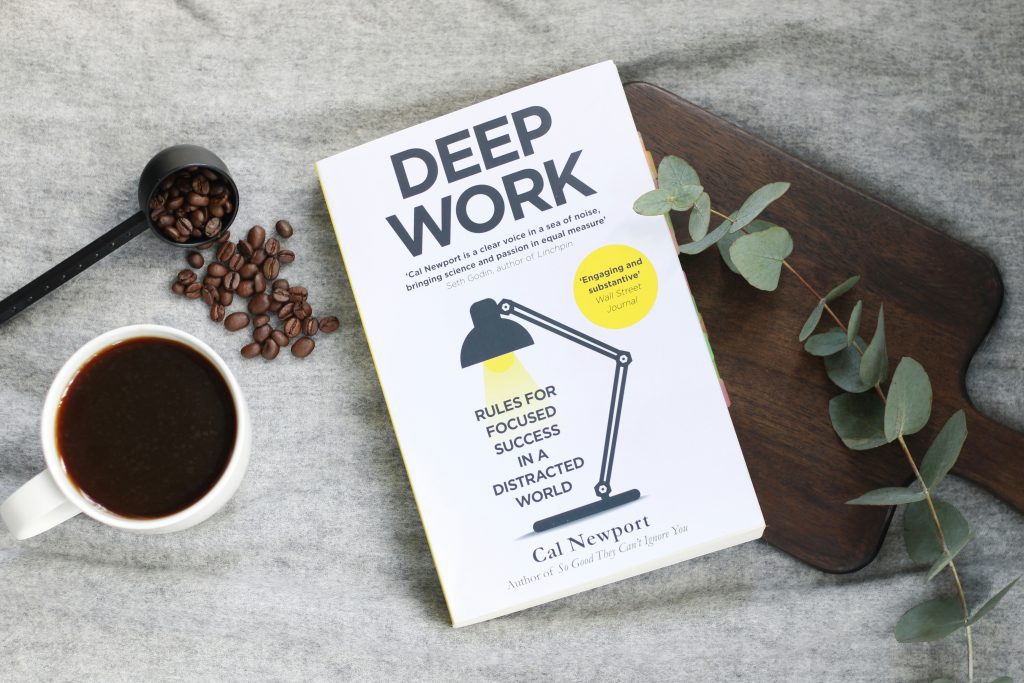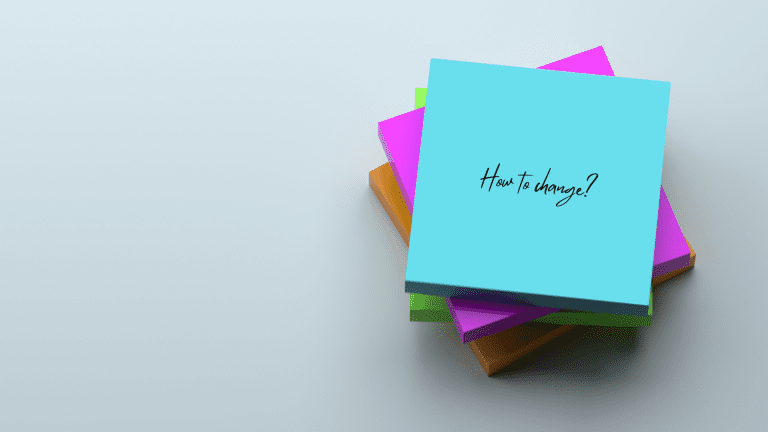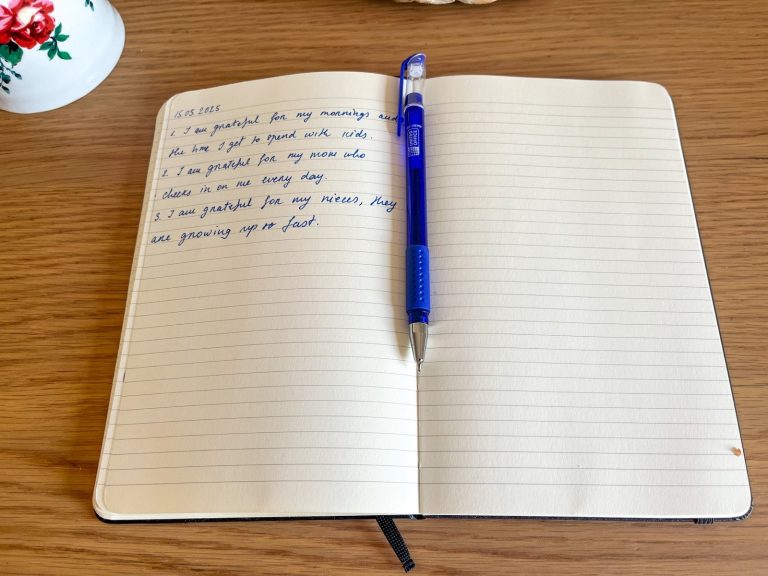How to Increase Productivity by Focusing on What Matters Most
Struggling to increase productivity and focus on important tasks? You are not alone.
In my twenties, I thought I was productive because I was always busy.
The truth? I was busy because I didn’t know how to prioritize, delegate, or focus on what mattered. Then, I procrastinated with YouTube, sports, and shallow tasks that made me feel like I was working.
I was always at my desk. Always doing something. But never making progress.
Eventually, I burned out. I felt exhausted. My health took a hit.
Looking back, I see the core mistake. I believed productivity was about doing more. I thought staying busy would eventually lead to success.
What I didn’t understand is that four hours of focused work will beat twelve hours of scattered effort every time.
Real productivity isn’t about how much you do. It’s about the quality of what you produce.
That’s especially true now.
We live in the age of AI. Tools like ChatGPT can generate results in seconds. But they can’t create with depth. They don’t have your life experience. They don’t feel what you feel.
Creativity is the new leverage. And creativity requires clarity.
You have to build your life around it. I move, read, write, eat clean, and unplug, because that’s what sets the stage for deep work.
That’s where the real value comes from.
What is productivity?
Productivity isn’t just about getting things done. It’s about getting the right things done.
Most tasks are noise. A few actually matter.
Real productivity is the ability to consistently finish the important ones. The ones that move your life or work forward.
It’s not about speed. It’s about direction.
Going full throttle on everything leads to burnout. Steady, focused effort on what matters leads to results.
Work on fewer things but do them well.
Simple ways to increase productivity
I struggled with productivity my entire life. I chased every method. Tried every app. Read every book.
But nothing stuck.
It wasn’t until my 40s that things finally clicked. And the solution? It wasn’t some new tool or trendy framework.
Self-care first
Prioritizing my health, mental and physical, has done more to increase my productivity than any system or tool ever could.
Here’s what I’ve learned.
When I start the day with movement and a healthy meal, I show up differently. I’m focused. Clear. Energized. The work flows. The decisions are sharper. I do what needs to be done without resistance.
But if I wake up late, skip the basics, and dive straight into work with just caffeine, I pay for it. My mind is foggy. I get distracted. Simple tasks take forever.
Self-care isn’t a luxury. It’s the foundation. So if you want to be productive, start by taking care of yourself.
If you need an additional push to start getting up earlier, check out my book review of The 5am Club.
Building good habits
Your daily routine shapes everything—your health, your focus, your relationships, your work.
Take a closer look at how your day begins. Do you protect your sleep? Move your body? Do you fuel it with real food?
If not, your productivity problem might not be your to-do list. It might be your lifestyle.
The goal is to build a routine so solid it runs on autopilot. Not through willpower—through design.
When your habits are automatic, your mind is free to create, think, and do deep work. The quality of your work improves. So does your energy. So does your life.
Getting up early gives you time to do what matters before the world starts asking for your attention. Movement clears your head. Nutrition fuels your focus.
Don’t just measure your productivity by what happens at your desk. Trace it back to how your day started.
That’s where it begins.
If you need help with introducing new habits, check out my post: How to make a habit stick
Limiting distractions
I’m not going to lie, this has been one of the hardest habits to break.
We’re glued to our phones: news, messages, group chats, YouTube. My sister sends me updates all day. I scroll through headlines. I check school apps like it’s my job.
But here’s the truth: if you don’t get your screen time under control, you won’t be productive.
Not truly.
You can lose hours without even noticing. It feels harmless, just a quick check, but those minutes add up. They fragment your focus. They kill your momentum.
That’s why I’ve made a rule: no phone in the morning. Not until I’ve moved, eaten, and set my day. Only then do I check it.
I also stopped pulling out my phone when I’m in line or waiting to pick up my kids. That time is mine. I use it to think, breathe, observe, and connect.
Our phones aren’t just distractions. They’re escape routes. They keep us from facing the work, the silence, even the people in front of us.
But when you take that time back, your attention comes with it.
And with attention comes clarity. Creativity. Real work.
Screens are the biggest productivity killers of our time.
Related post: Reduce screen time and regain focus
Consuming content
“Stop consuming, start creating.”
That’s the advice we hear everywhere. And while it’s not wrong, it’s missing something.
The problem isn’t consumption. It’s what we consume.
Mindless scrolling will drain you. But intentional learning? That will feed you. You need to read more. Think more. Expose yourself to new ideas, deeper questions, and better conversations.
Listen to podcasts that challenge you. Finish the course you started. Learn that language you’ve been putting off. Read the book collecting dust on your shelf.
Creating content
Creativity fuels productivity. You need a space to express your ideas. A place to think, to explore, to make something that feels like you.
You also need a purpose.
Because once you know why you’re doing the work and how it contributes to something bigger, you stop needing external motivation.
Purpose gives your creativity direction. It turns random ideas into meaningful action.
When you understand your role in the world, even in a small way, the work becomes clear. The energy shows up. The ideas start to flow.
And suddenly, productivity isn’t a struggle.
Deep focus on one task

I recently read Deep Work by Cal Newport, and it opened my eyes to a simple truth:
Most of us can’t focus.
We sit down to work, but our attention is fractured. Notifications, tabs, messages, and thoughts pull us in every direction.
Deep work is the opposite of that.
It’s an uninterrupted, focused effort on something that matters. And it’s rare, which is why it’s valuable.
To get into deep work, you need a few things:
- One task. Not five.
- A quiet, distraction-free space.
- Intense focus.
- Time. Not 20 minutes, think two to four hours.
The best time to do it? First thing in the morning, when your mind is clear and rested.
That’s why I front-load my day. After I exercise and eat, I sit down and write. No phone. No multitasking. Just focus.
Multitasking feels productive, but it’s not. It splits your attention and weakens your output. You end up doing everything halfway.
Real productivity isn’t about doing more. It’s about doing one thing, deeply.
Check out my post about Entering the state of flow.
Rest to increase productivity
It sounds strange to mention Rest in Productivity tips. However, if you are trying to increase productivity, then you need to rest during the day.
When you finish work, make sure to relax and spend time with friends and family. Do something fun, like play with your kid or watch a movie.
Without rest, there is no productivity. And if you keep overworking yourself, you will crash at some point.
Deliberate rest is the true key to productivity and will give us more energy, sharper ideas, and a better life. We need to relax more if we want to get more done.
Prepare the night before.
If you get up and have no plans for what to do with your morning, you will just scroll through your phone and get nothing done.
But if you get into the habit of planning your to-do list for tomorrow, then you get up and you have a plan.
For instance, I write down a couple of the most important things I want to do, like writing a blog post, learning SEO, and reading a book. It takes 10 minutes that night and saves 3 hours the next day.
Final Thoughts
To truly increase your productivity, focus on the right things.
Look at your tasks and prioritize what moves you closer to your goals. These are the ones you need to tackle first thing in the morning.
But here’s the thing: overworking isn’t productive. If you want quality work that lasts, you have to balance effort with rest.
Your well-being comes first. If you’re not taking care of yourself, your work will suffer in the long run.
Create an environment that fosters focus and creativity. This means optimizing your daily routine to support both work and recovery.
That includes walking, napping, and being present in the moment. These aren’t distractions. They’re tools for better work.
Productivity isn’t about doing more. It’s about doing the right things well.






